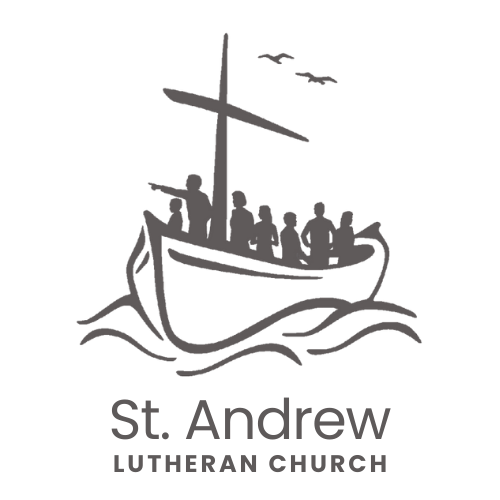Understanding Shelter Funding: Where the Money Comes From
Every shelter bed in Clark County exists because someone is paying for it—but the funding sources vary dramatically across the shelter landscape. Some shelters operate primarily on government contracts funded by the City of Vancouver, Clark County, or federal grants. Others rely heavily on private donations, faith-based fundraising, and community generosity. Understanding who funds each shelter helps clarify the financial reality of homeless services: this is not a fully government-funded system, nor is it entirely charity-based. It's a mixed model where public dollars, nonprofit budgets, and community donations all play essential roles. This guide shows you which shelters are sustained by which funding sources, helping you understand both the stability and vulnerabilities of our local shelter network.
How to Use This Guide:
This guide follows the same organizational structure as the Shelter Landscape document—year-round shelters, Safe Stay communities, winter-only shelters, city emergency shelters, and severe weather activations—but adds the critical detail of primary funding sources for each location.
Important distinction: While many shelters receive government funding through contracts with the City of Vancouver, Clark County, or state agencies, some programs depend almost entirely on community support. The Winter Hospitality Overflow (WHO) shelter at St. Andrew Lutheran Church is a prime example—it operates on donations, fundraising, foundation grants, and volunteer labor, with no direct government operations funding. WHO partners with Share, who does receive county grant monies to provide support services to WHO guests. However, the 50-bed winter shelter itself exists because the community chooses to sustain it each year. Understanding these funding differences helps explain why some shelters can operate year-round with stable staffing while others depend on seasonal fundraising campaigns and volunteer commitments.
Key takeaway: Government funding provides critical baseline capacity, but community-funded shelters like WHO fill essential gaps—especially during winter months when demand peaks and lives are at risk.
-
Share House (Men’s Shelter): 53 beds for men, plus 25 transitional beds and 1 medical respite bed. Provides meals, showers, laundry, and case management. Primary funding: Share Vancouver, with public/private support.
Share Orchards Inn & Homestead (Family Shelters): Together ~86 people across 14 family rooms each, plus 2 respite rooms per site. Primary funding: Share Vancouver, with City of Vancouver and community support.
WHAT Shelter (Women’s Housing and Transition): 18 beds in 6 semi-private rooms. Operated by Share. Primary funding: City of Vancouver.
St. Paul Lutheran Men’s Shelter (Outsiders Inn): 20–25 men. Year-round peer-support model with meals, showers, and case management. Also a daytime severe-weather warming site. Primary funding: City of Vancouver and Clark County contracts (administered by Outsiders Inn).
Bertha Cain Baugh Place (Catholic Community Services): Non-congregate, ~62 people in individual rooms. Primary funding: Catholic Community Services, supplemented by state and county housing funds.
Bertha’s Too (Catholic Community Services): 32 beds, serving single women, couples, and people over 55. Primary funding: Catholic Community Services, with local/state support.
Oak Bridge Youth Shelter (Janus Youth): 24/7 crisis shelter for youth ages 9–17. Primary funding: Janus Youth Programs, with state and county support.
-
The Outpost (2021, Outsiders Inn): ~40 residents. Primary funding: City of Vancouver.
415 West (2023, Outsiders Inn): ~40 residents. Primary funding: City of Vancouver.
Hope Village (2022, Live Love Outreach): ~40 residents. Primary funding: Private donors and faith-based fundraising.
4611 Main Street (2023, Do Good Multnomah): ~40 residents. Primary funding: City of Vancouver.
(All provide 24/7 access with case management and sanitation.)
-
WHO @ St. Andrew Lutheran: ~50 beds for families, couples, and women. 100% volunteer-staffed, with Share contracted to provide intake and case management. Primary funding: Community donations, fundraising, foundation grants (e.g., Ed & Dollie Lynch Foundation), interfaith partnerships.
SOS (Satellite Overflow Shelters): Immanuel Lutheran (Wed–Fri) and River City (Sat), ~15 beds each. Primary funding: Council for the Homeless coordination, operated by Outsiders Inn with community volunteer support. (Beautiful Savior closed due to 2024 flood damage.)
Washougal Winter Shelter (Salvation Army): East County seasonal shelter, relocated to Camas-Washougal Salvation Army. Provided 400+ overnights recently. Primary funding: Salvation Army, with county and donor support.
-
Vancouver Arts Hub: Up to 45 beds. Primary funding: City of Vancouver.
Chkalov Building: Up to 15 beds. Primary funding: City of Vancouver.
Esther Short Commons: 15 beds for Safe Park Zone participants. Primary funding: City of Vancouver.
-
Living Hope Church: Walk-in overnight warming center, open during declared severe weather. Primary funding: Clark County emergency response funds, with volunteer support.
Daytime Centers: St. Paul Lutheran and other sites provide daytime warming. Primary funding: Outsiders Inn contracts and community partners.
The Winter Hospitality Overflow at St. Andrew provides safe shelter, compassionate hospitality, and pathways to stability for neighbors in need during the coldest months of the year. Rooted in interfaith collaboration, we put love into action through volunteers, community partnerships, and professional housing support so that every guest experiences dignity, warmth, and hope.

